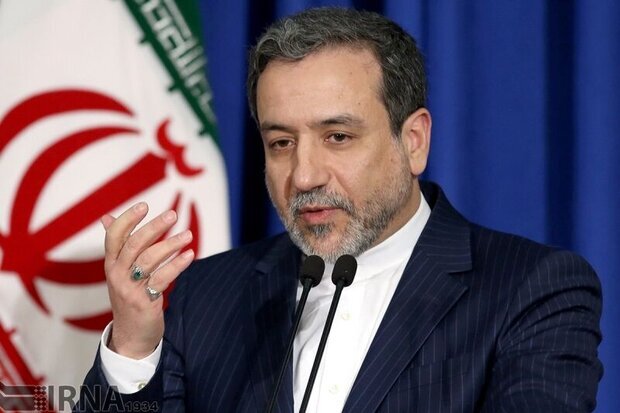Iran says ready to cooperate with intl. bodies to decrease climate change consequences

TEHRAN – Iranian Deputy Foreign Minister for Political Affairs Seyed Abbas Araqchi on Friday affirmed that Iran is firm to cooperate with international-regional organizations to narrow down the side-effects of climate change.
Addressing members of presiding board of the 6th session of international-regional climate change conference, Araqchi said, “Taking action against consequences of climate change is not possible without cooperation of regional countries.”
He further stressed that managing negative impacts of dust haze and trans-boundary waters is not possible without cooperation of regional states and international organizations.
The senior diplomat added that the Foreign Ministry is resolved to do its best to pave the ground for materialization of such cooperation between the regional nations.
Iran, in a letter to the director of Vienna-based United Nations Office for Outer Space Affairs (UNOOSA), protested at Washington's sanctions against the Iranian Space Agency (ISA) and two other space research institutions as a violation of international law.
The permanent representative of Iran to the Vienna-based international organizations handed over the protest letter to the UNOOSA director.
The letter pointed at the recent the U.S. illegal and unilateral sanctions against ISA, Space Research Center and Outer Space Research Institution whose responsibilities and missions only concentrated on non-military and peaceful uses of outer space activities.
The letter further underlines that the U.S. hostile unilateral measures are in contrast to international law in general and cooperation principles in the fields of space activities and free access of all government to space in particular.
The letter further emphasizes that Iran is a country prone to natural disasters including earthquake, flooding and drought, so utilizing space technology is vital for preventing the disasters and narrowing down their side-effects.
On March 19, 2019, massive downpours began sweeping Iran, with raging currents of water battering houses, washing away cars and killing people in several provinces.
The intense rainfalls eventually caused rivers to burst their banks triggering the worst flooding in decades in 25 of the country’s 31 provinces.
The flooding caused an estimated $2.5 billion in damage to roads, bridges, homes and farmland. It affected 4,400 villages, damaged 14,000 kilometers of roads and destroyed more than 700 bridges.
MJ/PA
Leave a Comment